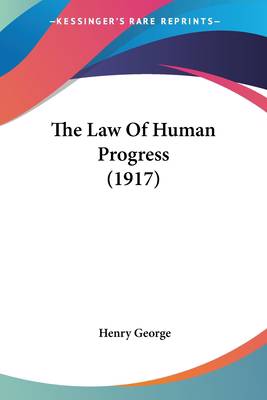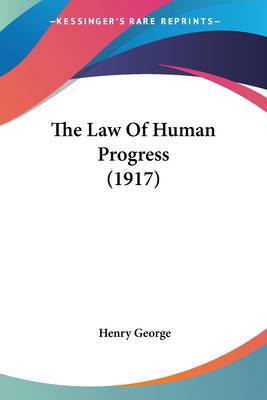
- Retrait gratuit dans votre magasin Club
- 7.000.000 titres dans notre catalogue
- Payer en toute sécurité
- Toujours un magasin près de chez vous
- Retrait gratuit dans votre magasin Club
- 7.000.0000 titres dans notre catalogue
- Payer en toute sécurité
- Toujours un magasin près de chez vous
Description
The Law of Human Progress, written by George Henry in 1917, is a philosophical and sociological treatise that explores the nature of progress and development in human society. The book argues that progress is not a natural or inevitable outcome of human existence, but rather a product of social and economic forces that can be harnessed and directed towards positive ends. Henry contends that progress is driven by the accumulation of knowledge and the expansion of human capabilities, which in turn depend on the development of institutions and systems that facilitate cooperation and collective action. He also argues that progress is hindered by inequality, injustice, and the concentration of wealth and power in the hands of a few. Throughout the book, Henry draws on a wide range of historical, cultural, and economic examples to illustrate his arguments, and he offers a detailed analysis of the social and economic conditions that promote or hinder progress. He also discusses the role of education, technology, and political systems in shaping the course of human development. Overall, The Law of Human Progress is a thought-provoking and insightful work that offers a unique perspective on the nature of progress and the challenges facing modern society. It remains relevant today as a powerful critique of inequality and a call to action for those committed to building a more just and equitable world.This scarce antiquarian book is a facsimile reprint of the old original and may contain some imperfections such as library marks and notations. Because we believe this work is culturally important, we have made it available as part of our commitment for protecting, preserving, and promoting the world's literature in affordable, high quality, modern editions, that are true to their original work.
Spécifications
Parties prenantes
- Auteur(s) :
- Editeur:
Contenu
- Nombre de pages :
- 128
- Langue:
- Anglais
Caractéristiques
- EAN:
- 9781120896308
- Date de parution :
- 29-01-10
- Format:
- Livre broché
- Format numérique:
- Trade paperback (VS)
- Dimensions :
- 152 mm x 229 mm
- Poids :
- 181 g

Les avis
Nous publions uniquement les avis qui respectent les conditions requises. Consultez nos conditions pour les avis.






